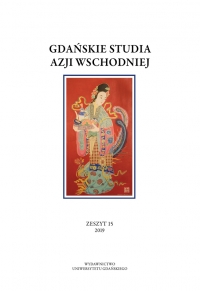Wpływ indyjskiego buddyzmu na taoistyczną myśl społeczną i polityczną
Abstrakt
This article provides an analysis of the Indian cultural impact on Daoism that occurred through the spread of Buddhist religion and philosophy to China. With the exception of adherents of early Neo-Daoist philosophy, the paper emphasizes the rising popularity of religious escapism and anti-individualism among the Chinese, which contributed significantly to the destruction of original Daoist social and political thought. The author demonstrates that philosophical Daoism should not be understood as truly similar to any form of Buddhism, since Indian and Chinese cultures were fundamentally different (there was no unitary Eastern Wisdom at all). The main thesis of the article is that the influence of Indian Buddhism (especially during the early medieval period) gradually turned Daoism into an organized religion. As a result of Daoism’s being seen through the lens of Indian spirituality, many people still mistakenly consider Daoist thought to be predominantly transcendental, metaphysical, submissive, and apolitical.

 Uniwersyteckie Czasopisma Naukowe
Uniwersyteckie Czasopisma Naukowe





